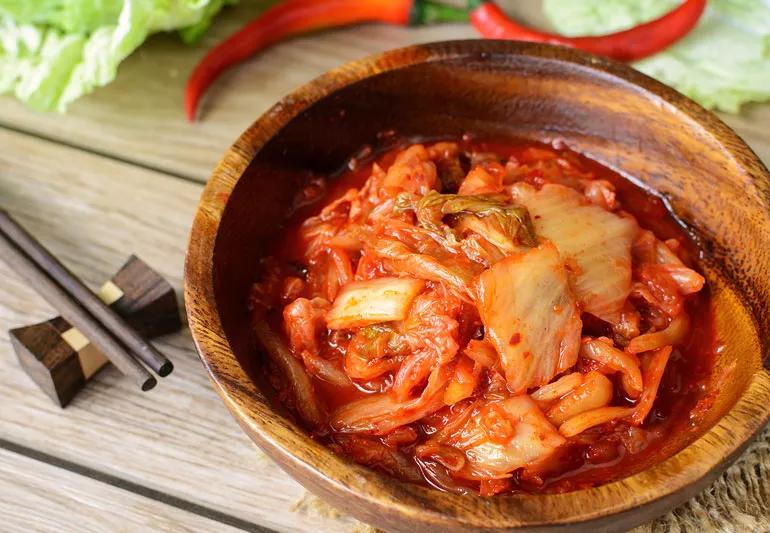From sauerkraut to kimchi, these foods help keep your gut healthy

Trillions of bacteria live in your intestines — but don’t be grossed out! Many of them are “good” bacteria that help keep us healthy.
Advertisement
Cleveland Clinic is a non-profit academic medical center. Advertising on our site helps support our mission. We do not endorse non-Cleveland Clinic products or services. Policy
Think of it like having pets living inside of you. And, as with any pets, you’ve got to feed them. Gail Cresci, PhD, RD, who studies gut bacteria, says a modern Western diet heavy on processed foods can upset the balance of your gut microbiota, which can lead to unpleasant gastrointestinal symptoms.
Fermented foods can help. Dr. Cresci explains a few reasons why bringing back traditional fermented foods, such as fermented sauerkraut or pickles, into your diet is good for optimal health.
Good bacteria help break down complex carbohydrates that you eat. This fermenting and metabolizing process results in other substances that are beneficial to your body, too.
To support a healthy balance of gut bacteria, you need plenty of soluble fiber from foods like beans, oats and oranges. Insoluble fiber, found in many whole grains, is good for you too. But it’s not easily fermented, so it doesn’t do much to grow your gut’s microbial variety.
Every day, you swallow pathogenic (disease-causing) bacteria. You don’t always get sick from it, though, because your tiny microscopic helpers take care of it. Good bacteria create acidic fermentation byproducts that lower your intestine’s pH, decreasing the chance that bad bacteria can survive. They also compete for food supply and squatting rights on your intestinal lining. Plus, they secrete antimicrobial proteins that kill off bad bacteria.
Advertisement
Good bacteria are to thank for synthesizing, or producing, many vitamins your body needs. That list includes vitamins B1, B2, B3, B5, B6, B12 and K.
Tiny bacteria in your intestine have full-body effects. Research shows that a less varied gut microbiota is linked to chronic conditions like obesity, asthma and inflammatory bowel disease. Research is still ongoing into why this is the case.
Ever had diarrhea or other digestive problems after taking antibiotics? That’s because they wipe out both good and bad bacteria. Eating fermented foods may help restore your gut bacteria to normal. Be sure to eat a diet high in fiber and plant-based foods, which gut microbes flourish on.
Mix and match these gut-healthy foods for optimal benefits.
Advertisement

Sign up for our Health Essentials emails for expert guidance on nutrition, fitness, sleep, skin care and more.
Learn more about our editorial process.
Advertisement

The tropical fruit is a good source of antioxidants and vitamin C

High amounts of cholesterol and saturated fat in red meat may be linked to heart disease

The leaves and pods from this tree are rich in essential nutrients

This starchy root vegetable is a staple in many global cuisines — but it has to be prepared correctly, or it can cause serious concerns

These delicate green sprouts can give you an extra dose of vitamin K and other nutrients — but they’re not safe for everyone

Edamame, lentils and chicken breast are good sources of protein

Eating this root vegetable can help support your eye, heart and brain health

The flavorful herb is full of antioxidants that may help regulate blood sugar

Although it could be used as a moisturizer, this new trend is not recommended

Communicating clear limits helps protect your time, energy and emotional well-being

High cholesterol can be genetic, but testing and treatment can lower your heart disease risk